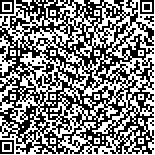| 摘要: |
| 塑料的大量生产和使用导致其在自然界积累,并在各种环境因素作用下裂解,产生粒径小于5 mm的碎片和颗粒,即微塑料,全球的水生生态系统都发现有一定程度微塑料污染。各种水生动物,包括人类经常食用的鱼、虾和贝类等水产动物,都不可避免摄入微塑料,并通过食物链传递给人。微塑料中含有添加剂,其表面可以吸附周围环境的化学物质甚至微生物。动物和人摄入微塑料,可通过胃肠道转移到其他器官,给健康造成潜在危害,受到学术界越来越多的关注。作者从水产动物中的微塑料、人体暴露途径和潜在毒性3个方面,对水产食物链中的微塑料及其对人健康的潜在危险的研究进展做了简要概述。 |
| 关键词: 塑料污染 微塑料 水产动物 健康 毒性 |
| DOI:10.11759/hykx20230424001 |
| 分类号:Q955 |
| 基金项目:喀什大学科研启动基金资助项目(022023184) |
|
| Microplastic accumulation in aquatic animals and its potential risks toward human health |
|
WANG Na1, ZHANG Shi-cui1,2
|
|
1.College of Life and Geographic Sciences, Key Laboratory of Biological Resources and Ecology of Pamirs Plateau in Xinjiang Uygur Autonomous Region, Kashi University, Kashi 844000, China;2.Institute of Evolution & Marine Biodiversity, Ocean University of China, Qingdao 266003, China
|
| Abstract: |
| Anthropogenic activities have led to microplastic contamination in marine and freshwater environments. Accumulating data have demonstrated that microplastics are ingested by many species of aquatic animals, including fish, shrimp, and shellfish. These organisms are included in the human diet and may enter the human body via the food chain. Because microplastics contain and can release chemical substances (inorganic and organic) present in their matrix or previously absorbed from the surrounding environment, the physical and chemical harm to animals and humans is a cause for concern worldwide, which is increasingly garnering attention in the academic community. Herein, we briefly discussed the progress in the study of microplastics in aquatic animals and their potential risks to human health. |
| Key words: plastic contamination microplastics aquatic animals health toxicity |
